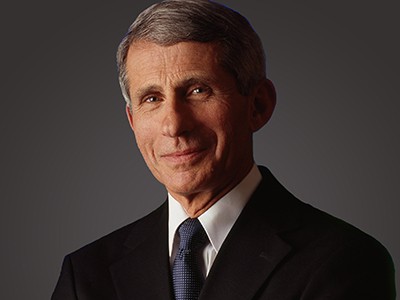As a young man, I watched an epidemic wash over the bodies of dozens I knew and loved, carrying them away while many people went blithely about the ordinary business of their lives. Starting in the 1980s, the AIDS epidemic, as the late activist Vito Russo said, was “like living through a war which is happening only for those people who happen to be in the trenches”.
Forty years later, as an epidemiologist, I’m again bearing witness to a viral scourge assaulting my community of gay men. Human monkeypox was once largely confined to endemic regions in West and Central Africa — but now more than 50,000 cases have been recorded in nearly 100 countries since May 2022, predominantly among men who have sex with men. As with the AIDS epidemic, sluggish responses from governments and international institutions, plus outright homophobia and bureaucratic bumbling, have hampered efforts to contain the outbreak.
Very often, humanity has the ability to prevent and treat infectious disease; not doing so is a political choice.
I and others spent weeks clamouring for better access to monkeypox testing — which, here in the United States, was centralized at state health departments, until the Centers for Disease Control and Prevention finally allowed commercial vendors to offer tests. While hundreds of gay men waited in lines for vaccines developed by the biotechnology company Bavarian Nordic, based in Hellerup, Denmark, the US Biomedical Advanced Research and Development Authority sat on 300,000 US-owned doses stored in Copenhagen. In August, the US government decided — rather than pursuing immediate scale-up of vaccine production — to split doses into fifths, administered intradermally. The move was not without controversy.
Meanwhile, the head of the World Health Organization had to overrule his own squabbling advisory committee to declare monkeypox a global public-health emergency.
In 2018, I said, “infectious diseases will always be with us, but epidemics are a human creation”, musing on the Ebola outbreaks then spreading in West Africa, the importation of cholera into Haiti by United Nations peacekeepers in 2010 and the AIDS epidemic. The response to AIDS, Ebola, cholera, monkeypox and any number of neglected diseases, including major killers such as tuberculosis, isn’t mere negligence. It’s public policy that embraces suffering and death. Even our language is a dodge. The phrase ‘neglected diseases’ evades the question: neglected by whom?
Just look to the US surrender to COVID-19, with 400–500 people still dying there each day; those in power decided that there are people who are simply expendable. Supposedly, as US President Joe Biden has said, we are tired of the pandemic. However, we are not bothered much by the human carnage. We could do more but have decided not to.
The United States spends relatively little on public health — less than 2 cents for every dollar spent on health care — and leaves clinical medicine to pick up the pieces when people end up in hospital. It has reaped disaster for the lack of investment in social protections. Even with enormous spending on health care, the United States ranks around the 40s when countries are listed by life expectancy, behind many much poorer countries, because health is determined by social and economic factors those of us in the country would rather not acknowledge. And although we’ve ignored monkeypox for decades in Africa, this virus, along with SARS-CoV-2 and HIV, shows how microbes have a way of making the world very small with no place to hide.
As scientists, as clinicians, as public-health experts, we do our jobs in our laboratories, at the bedside, at our laptops. We learn a tremendous amount about disease, and develop vaccines and treatments for the patients who arrive at our clinics. But perhaps we need to do more.
Some might bristle at the idea that researchers need to be advocates, too. But the history of public health and medicine shows that some of our greatest achievements were not technological. They happened when we pushed for what was right: the sanitation campaigns of the nineteenth century, the fight for national health-care programmes throughout Europe in the twentieth century, the great social programmes of the 1930s and 1960s in the United State that expanded our safety net, the fight for access to AIDS drugs in Africa in the twenty-first century. These accomplishments, in part, were thanks to us. Scientists did great things, which made people healthier and happier, and let them live longer.
The past few months and years have been a challenge. Let us rise to it. The quest to establish health care for all, to attain social protections to make the basics in life more than a luxury, and to serve marginalized and neglected communities has not been completed, although many have fought for these goals for years. In fact, in many places, they are considered incompatible with what too many think of as ‘prudent economics’ and ‘sound governance’.
The idea that medical interventions are all humanity needs to stay safe, or that pandemic preparedness can exist without addressing fundamental weaknesses in the way we live, will leave us more than disappointed — it will render us vulnerable once again to the next virus that sweeps across the globe and to the slow boil of climate change. For too long, we’ve been too willing to sacrifice people to protect the status quo. Some viruses might be deadly, but they need our help to cause havoc.
The Link LonkSeptember 13, 2022 at 06:13PM
https://www.nature.com/articles/d41586-022-02917-z
Monkeypox, COVID-19, AIDS: have we progressed so little? - Nature.com
https://news.google.com/search?q=little&hl=en-US&gl=US&ceid=US:en



No comments:
Post a Comment